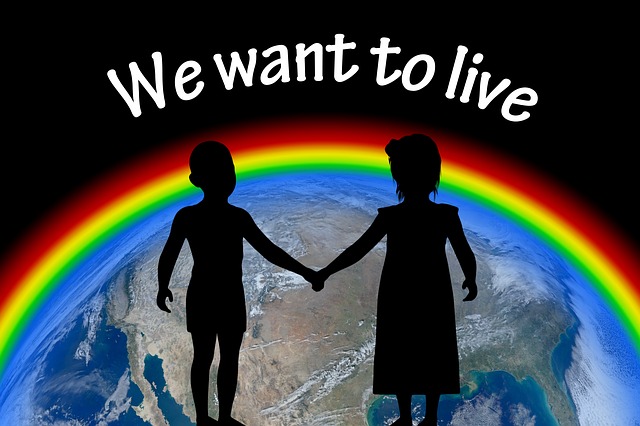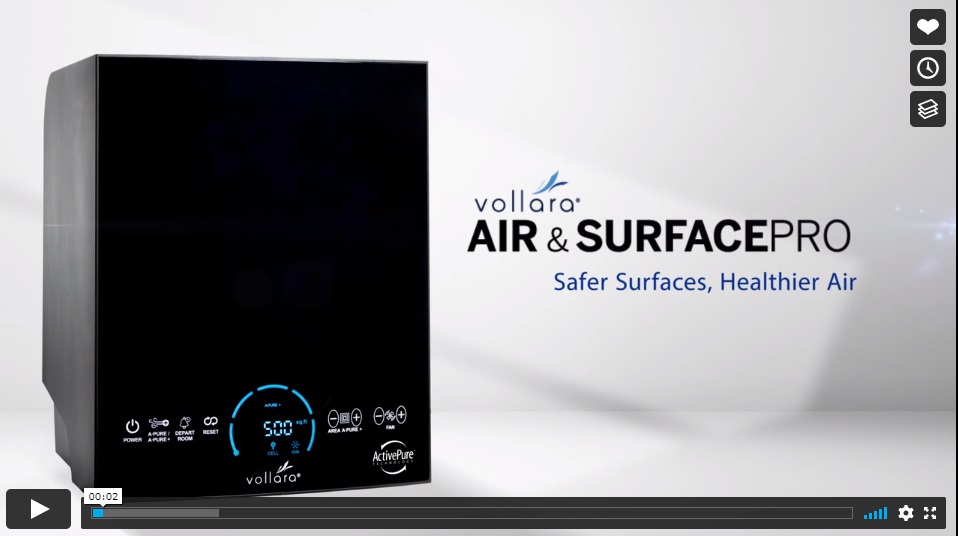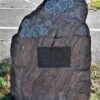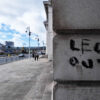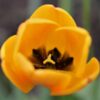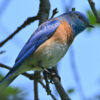Coronavirus News
Coronavirus What you need to know about COVID-19 in Ottawa on Sunday Aug. 30
CBC Ottawa’s latest roundup of key updates during the coronavirus pandemic.People take photos as they sit in lawn chairs in the shallow waters of the Rideau River near the Adàwe Crossing in Ottawa. (Justin Tang/Canadian Press)Recent developments: Health officials in Ottawa reported 16 new cases of COVID-19 on Sunday. Ontario reported 112 new cases of…

Coronavirus
CBC Ottawa’s latest roundup of key updates during the coronavirus pandemic.
Recent developments:
- Health officials in Ottawa reported 16 new cases of COVID-19 on Sunday.
- Ontario reported 112 new cases of the illness, bringing the province’s total to 42,195.
- Hundreds of people turned out to an anti-mask rally on Parliament Hill Saturday.
Coronavirus What’s the latest?
Ottawa Public Health reported 16 new cases of COVID-19 Sunday afternoon.
The city also bucked a week-long trend and saw it’s number of active COVID-19 cases decrease to 200.
There are currently 11 people in hospital, including two who are in intensive care.
Across Ontario, there were 112 new cases of COVID-19 reported Sunday, with the majority concentrated in the Toronto, Peel and Ottawa regions.
Flouting public health guidance to wear masks in public areas, avoid large gatherings and practise physical distancing, hundreds of demonstrators gathered on Parliament Hill Saturday to protest pandemic safety measures they say infringe on their personal rights.

Coronavirus What’s the latest on schools?
There was a mix of emotions at English schools in western Quebec as students returned on Friday.
The Conseil des écoles catholiques du Centre-Est is delaying the start of the school year for some high school students and those who will be learning remotely until Sept. 8.
The change doesn’t apply to the board’s high schools in Brockville, Ont., Kingston, Ont., Kemptville, Ont., and Pembroke, Ont., which will still begin Thursday.
Students returning to the classroom in kindergarten to Grade 8 will also begin the school year Thursday.

In a letter to parents, the Upper Canada District School Board said once the school year starts it “may not be possible” for students to switch between classroom and online learning.
The board said it had previously planned to allow that to happen at set intervals, but after the “unanticipated amount of interest in remote learning,” it’s now rethinking that.
Approximately 20 per cent of the board’s student population chose remote learning. Parents had until Friday to contact schools and change their decision on their preferred learning model.
The board has implemented a staggered start over three days, with some students returning to class Sept. 11, while others will return on Sept. 14 and 15.
The Ottawa-Carleton District School Board has delayed the start of classes until Sept. 8.
Trustees also rejected a proposal to require masks for younger students, voting instead to encourage their use among children in kindergarten to Grade 3. Students in grades 4 to 12 must wear masks while indoors, including in hallways and classrooms.
Teachers with the board say they’re still waiting for information about what courses they’ll be expected to teach come next month, and what the expectations are for how classes will run in the midst of the pandemic.
WATCH | Parents and care providers grapple with after-school safety
Those providing child care before and after school are scrambling to prepare their facilities to protect kids from COVID-19 under guidelines released just last week. But, the fear of infection has some parents making their own arrangements. 1:53
The Ottawa Catholic School Board (OCSB) has also delayed the return to school. Students in kindergarten to Grade 3, as well as Grade 7, will now start Sept. 8. Kids in grades 4 to 6, along with Grade 8, will start Sept. 9. High school students will be separated into two separate cohorts, with group A starting on Sept. 14, and group B on Sept. 15.
The OCSB’s starting date for online learning remains unchanged.
Quebec updated its school plans in early August, including making masks mandatory in hallways for students Grades 5 and up.
Coronavirus How many cases are there?
There have been 2,946 confirmed cases of COVID-19 in Ottawa since the start of the pandemic, with 200 current active cases and another 2,480 cases considered resolved. There have been a total of 266 deaths related to the illness in the city.
Overall, public health officials have reported more than 4,500 cases across eastern Ontario and western Quebec, with more than 3,800 resolved.
COVID-19 has killed 102 people in the region outside Ottawa.
As of Aug. 26, 52 people have died in Leeds, Grenville and Lanark counties. Additionally, 17 people have died in other parts of eastern Ontario and 33 in the Outaouais.
Coronavirus What’s open and closed
Ottawa is in Stage 3 of Ontario’s reopening plan, which means more businesses are open including dine-in restaurants and movie theatres.
Indoor gatherings of up to 50 people and outdoor gatherings of up to 100 are now allowed in that province but attendees must follow physical distancing guidelines.
Quebec has similar rules, with its cap on physically distanced gatherings in public venues now up to 250 people, allowing smaller festivals.
Coronavirus Distancing and isolating
The novel coronavirus primarily spreads through droplets when an infected person coughs or sneezes on another person or object. People don’t need to have symptoms to be contagious.
That means physical distancing measures such as working from home, meeting others outdoors as much as possible and keeping distance from anyone they don’t live with or have in their circle, including when you have a mask on.
WATCH | Could Canada impose mandatory masks outdoors?
Even though the COVID-19 situation is largely under control in Canada, there are growing calls for mandatory outdoor masks nationwide, but the country’s top health officials are not convinced that’s necessary. 1:48
Masks are now mandatory in indoor public settings in all of eastern Ontario and Quebec, where transit officials and taxi drivers are now required to bar access to users over age 12 who refuse to wear one.
Masks are also recommended outdoors when you can’t stay the proper distance from others.
Anyone who has symptoms or travelled recently outside Canada must self-isolate for at least 14 days.
WATCH | Testing international travelers on arrival could decrease quarantine times
Canadian public health officials are exploring the idea of testing international passengers on arrival — possibly slashing the time needed to spend in quarantine. 1:47
Ontario’s Chief Medical Officer of Health strongly urges self-isolation for people with weakened immune systems and OPH recommends people over 70 stay home as much as possible.
Coronavirus What are the symptoms of COVID-19?
COVID-19 can range from a cold-like illness to a severe lung infection, with common symptoms including fever, a dry cough, vomiting and the loss of taste or smell.
Less common symptoms include chills, headaches and pinkeye. Children can develop a rash.
If you have severe symptoms, call 911.
Coronavirus Where to get tested
In eastern Ontario:
In Ottawa any resident who feels they need a test, even if they are not showing symptoms, can be tested at one of three sites.
Inuit in Ottawa can call the Akausivik Inuit Family Health Team at 613-740-0999 for service, including testing, in Inuktitut or English on weekdays.
In the Eastern Ontario Health Unit area, there is a drive-thru centre in Casselman that can handle 200 tests a day and assessment centres in Hawkesbury and Winchester that don’t require people to call ahead.

Others in Alexandria, Rockland and Cornwall require an appointment.
In Kingston, the Leon’s Centre is hosting the city’s test site. Find it at Gate 2.
Napanee‘s test centre is open daily for people who call for an appointment.
You can arrange a test in Bancroft, Belleville or Trenton by calling the centre and in Picton by texting or calling.
The Leeds, Grenville and Lanark unit asks you to get tested if you have a symptom or concerns about exposure.
It has a walk-in site in Brockville at the Memorial Centre and testing sites in Smiths Falls and Almonte which require an appointment.

Renfrew County residents should call their family doctor and those without access to a family doctor can call 1-844-727-6404 to register for a test or if they have health questions, COVID-19-related or not.
In western Quebec:
Outaouais residents now can get a walk-in test in Gatineau five days a week at 135 blvd. Saint-Raymond and at recurring clinics by appointment in communities such as Gracefield, Val-des-Monts and Fort-Coulonge.
They can call 1-877-644-4545 to make an appointment or if they have other questions.
As of mid-August, there were longer wait times for test results here compared to some other regions of Quebec.
First Nations:
Local communities have declared states of emergency, put in a curfew or both.
Akwesasne has had 14 confirmed COVID-19 cases. Most are linked back to a gathering on an island with a non-resident who wasn’t showing symptoms at the time.
It has a mobile COVID-19 test site available by appointment only. Anyone returning to the community on the Canadian side of the international border who’s been farther than 160 kilometres away — or to Montreal — for non-essential reasons is asked to self-isolate for 14 days.
Anyone in Tyendinaga who’s interested in a test can call 613-967-3603 to talk to a nurse. Face coverings are now mandatory in its public buildings.
People in Pikwakanagan can book an appointment for a COVID-19 test by calling 613-625-2259.
Kitigan Zibi plans on starting to open schools and daycares next month.
Coronavirus For more information
- Ottawa Public Health.
- Your local eastern Ontario health unit.
- The Ontario Ministry of Health (in several languages).
- The Centre intégré de santé et de services sociaux de l’Outaouais.
- The Public Health Agency of Canada.

Subscribe to the newsletter news
We hate SPAM and promise to keep your email address safe


